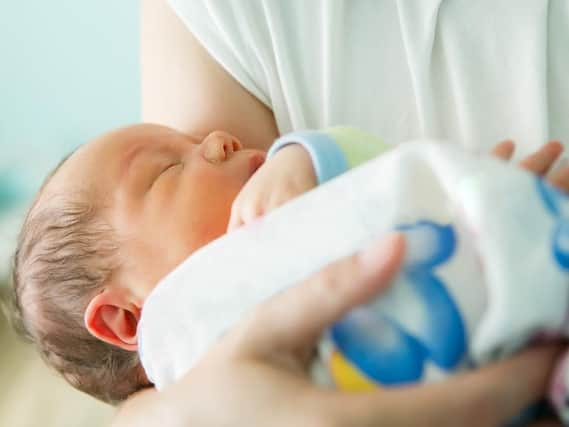Maternity services warning sparks care concerns in Burnley


The Care Quality Commission’s new State of Care report warns that nearly half of all maternity and gynaecology services in England are performing under par.
The findings come amid mounting concerns over a national shortage of midwives and rising birth rates in the north west: there has been an 11 per cent increase in the number of babies born in the region since 2001.
To add to concerns, there has also been a dramatic rise in the number of women in their 40s giving birth in England. The ‘higher risk’ births have soared over 80 per cent from 16,000 in 2001 to 29,000 last year.
The official findings add to concern over safety for babies and mothers in the care of maternity services in the north following a series of distressing incidents and claims of medical negligence.
According to leading medical negligence lawyer Diane Rostron, the report confirms fears that maternity services are struggling to cope – raising the risk of medical blunders.
She said shortfalls in quality of care can lead to devastating consequences for families.
“Overstretched services mean that staff are under increasing pressure and are more likely to make mistakes. The effects are devastating leaving too many babies, mothers and whole families living with preventable catastrophic injuries for life,” she said.
“Physical injuries can devastate lives, while some will also suffer significant psychological trauma in addition to this.
“Pregnant women need to know that they can trust their local maternity services to deliver proper, and safe care.
“The fact that almost half of our maternity and gynaecology services are operating in a manner that is not regarded as good enough by the Care Quality Commission should be a red flag to us all.”
She has called for further funding and training for midwives and investment in maternity units to help raise the level of the service.
There has been a spate of distressing headlines related to maternity services in the north of England, including a shocking report into the deaths of 11 babies and one mother at Furness General Hospital in Barrow, which found regulators took too long to respond to concerns about midwives.
Meanwhile in January it emerged that a Burnley mum was taking the Trust to the High Court, claiming her six-year-old daughter’s cerebral palsy was a result of delays to her care when she was born.
According to a writ issued in London’s High Court, the little girl is severely disabled after parts of her brain died as her mother spent up to three days in undetected labour.
East Lancashire Hospitals Trust has paid out £57million in negligence claims over the past five years, of which £2.75m has gone towards historic claims dating back years.
NHS Resolution, the organisation that handles compensation claims on behalf of the NHS in England, recently revealed in its annual report that medical negligence claims against maternity units are up by almost a quarter on the previous year.
Parents lodged claims at a rate of nearly 20 a month during 2016-17, with the 232 claims representing a jump of 23 per cent on the previous year, and the highest for 11 years.
The recent CGC report says that while there have been some improvements in women’s perceptions of being offered more choices regarding their maternity care, over a third of maternity services inspected need to improve.
RCM head of health and social policy Sean O’Sullivan said: “Despite the government’s welcome commitment to 3000 more midwives in England, maternity services remain under pressure with births becoming more complex.
“We also see systems in trusts that do not support midwives and their maternity colleagues being able to deliver the best possible care and this needs to change.”
East Lancashire NHS Trust was placed in ‘special measures’ on 2013 by the CQC amid concern over higher-than expected death rates. By January last year it had received a “good” rating by inspectors, however, it’s thought there may be families affected by poor care and negligence in the past who have yet to find out if they may be entitled to compensation.
Ms Rostron, who has acted for families across the north of England who have been affected by medical negligence, has called for people with concerns to get in touch.
“It’s important that the NHS knows if something somewhere has gone wrong – that way they can prevent the same thing happening to someone else.
“Also, families have to live with the fall-out of a medical mistake that can linger for years and cause real hardship.”
To find out how her team can help, contact her office on 01253 766 559, and visit her website www.dianerostron.co.uk